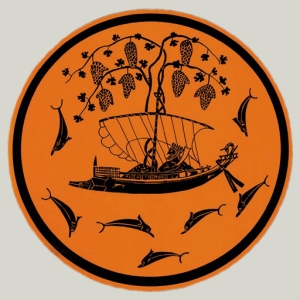Mr. Skimpole was as agreeable at breakfast, as he had been over-night. There was honey on the table, and it led him into a discourse about Bees. He had no objection to honey, he said (and I should think he had not, for he seemed to like it), but he protested against the overweening assumptions of Bees. He didn’t at all see why the busy Bee should be proposed as a model to him; he supposed the Bee liked to make honey, or he wouldn’t do it–nobody asked him. It was not necessary for the Bee to make such a merit of his tastes. If every confectioner went buzzing about the world, banging against everything that came in his way, and egotistically calling upon everybody to take notice that he was going to his work and must not be interrupted, the world would be quite an unsupportable place. Then, after all, it was a ridiculous position, to be smoked out of your fortune with brimstone, as soon as you had made it. You would have a very mean opinion of a Manchester man, if he spun cotton for no other purpose. He must say he thought a Drone the embodiment of a pleasanter and wiser idea. The Drone said, unaffectedly, ‘You will excuse me; I really cannot attend to the shop! I find myself in a world in which there is so much to see, and so short a time to see it in, that I must take the liberty of looking about me, and begging to be provided for by somebody who doesn’t want to look about him.’ This appeared to Mr. Skimpole to be the Drone philosophy, and he thought it a very good philosophy–always supposing the Drone to be willing to be on good terms with the Bee; which, so far as he knew, the easy fellow always was, if the consequential creature would only let him, and not be so conceited about his honey!
[Charles Dickens, Bleak House (1852-3)]
philosophy
columbæ
On pigeons…
What a peace-loving but prudent race they were, not predatory and yet not craven. Of all the birds, I thought, they must be the best citizens, the most susceptible to the principles of the League of Nations. They were not hysterical, but able to escape danger. For panic as an urge to safety they substituted foresight, cunning and equanimity. They were admirable parents and affectionate lovers. They were hard to kill. It was as if they possessed the maximum of insight into the basic wickedness of the world, and the maximum of circumspection in opposing their own wisdom to evade it. Grey quakers incessantly caravanning in covered wagons, through deserts of savages and cannibals, they loved one another and wisely fled.
[T.H. White, The Goshawk]
cardo et decumanus
Every Man is a Roman Forum.
All things are up and down — east and west to me. In me is the forum out of which go the Appian and Sacred ways, and a thousand beside, to the ends of the world– If I forget my centralness, and say a bean winds with or against the sun, and not right or left, it will not be true south of the equator.
[H. D. Thoreau, Journal, 11 July 1839]
autarky
Shaw and I were much better fitted for this mode of travelling than we had been on betaking ourselves to the prairies for the first time a few months before. The daily routine had ceased to be a novelty. All the details of the journey and the camp had become familiar to us. We had seen life under a new aspect; the human biped had been reduced to his primitive condition. We had lived without law to protect, a roof to shelter, or garment of cloth to cover us. One of us at least had been without bread, and without salt to season his food. Our idea of what is indispensable to human existence and enjoyment had been wonderfully curtailed, and a horse, a rifle and a knife seemed to make up the whole of life’s necessaries. For these once obtained, together with the skill to use them, all else that is essential would follow in their train, and a host of luxuries besides. One other lesson our short prairie experience had taught us; that of profound contentment in the present, and utter contempt for what the future might bring forth.
[Francis Parkman, The Oregon Trail (1849)]
eupraxia
The hope of philosophy was to create a tranquility so stable that the world could not assail it. This stability will always turn out to be a madness or obsession or brutal indifference to the world. Philosophy is rather the self-mastery that frees one enough — of laziness, selfishness, rage, jealousy, and such failures of spirit — to help others, write for others, draw for others, be friends….
[Guy Davenport, “Journal I,” in The Hunter Gracchus]
